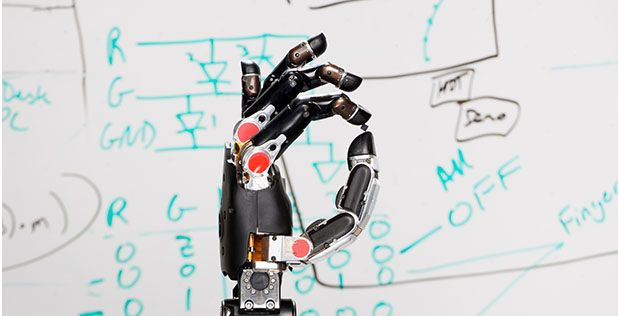DARPA Reveals Prosthetic Hand That Connects To Brain, Giving Its User His Sense Of Touch Back

If you’ve never heard of DARPA, here’s an introduction on this awesome/slightly terrifying government organization. DARPA stands for Defense Advanced Research Projects Agency, and they’ve made everything from robots that run, robotic dogs that run, exoskeletons that help soldiers lift huge amounts, and more. They do a lot of awesome things that make some people excited for the future and others equally worried. However, on the side of exciting announcements, DARPA says it has recently successfully restored a subject’s sense of touch using a prosthetic hand attached directly to the brain.
According to a study from the University of Chicago, a person’s sense of touch is three different brain processes working on their own to convey specific information. That being said, not everyone is able to have the sensation of touch. Some have lost it in an accident, as was the case of the 28-year-old anonymous man who was paralyzed after suffering a spinal cord injury. Electrodes were placed on the man’s sensory cortex — the part of the brain that controls touch — and connected to pressure sensors on a prosthetic hand, with electrical signals being sent from hand to brain. When blindfolded, the man reported with nearly 100 percent accuracy which of the fingers were being touched.
“At one point, instead of pressing one finger, the team decided to press two without telling him,” said Dr. Justin Sanchez, who oversees the Revolutionizing Prosthetics program, in a press release. “He responded in jest asking whether somebody was trying to play a trick on him. That is when we knew that the feelings he was perceiving through the robotic hand were near natural.”
DARPA claims that this research is a world-first in the prosthetics field, but the full extent of their work has yet to be revealed. Though there have been prosthetics that have allowed people to control movement as well as generate a sense of touch, these previous iterations have found that their results are short-lived or inaccurate. Though these robotics may not be able to fully restore a person’s lost sense of touch, even a small feeling of sensation will allow people to better interact with objects in their daily lives. It may even eliminate the sense of phantom pain in a lost limb.
While the research done by DARPA is currently under peer review and is awaiting acceptance of publication in a scientific journal, the team is optimistic that they’ve taken a giant leap forward in what they call "seamless bio-technological restoration of near-natural function" in prosthetic limbs. "Prosthetic limbs that can be controlled by thoughts are showing great promise, but without feedback from signals traveling back to the brain, it can be difficult to achieve the level of control needed to perform precise movements," Sanchez said. "We’ve completed the circuit."
Published by Medicaldaily.com



























